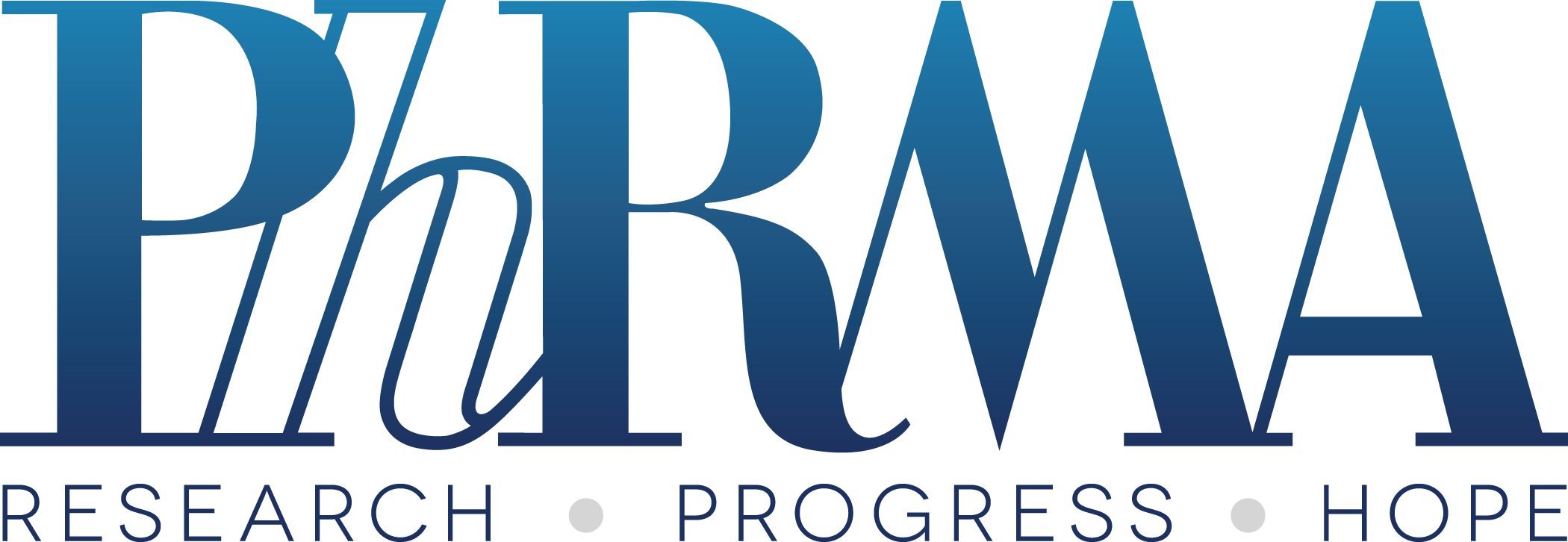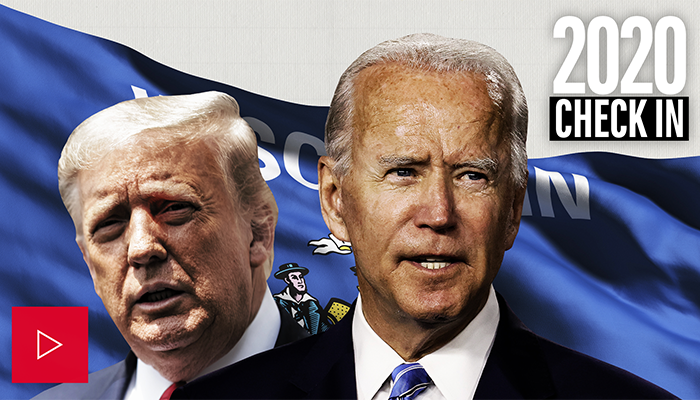| | |  | BY RENUKA RAYASAM | Presented by |  |
|
| With help from Myah Ward OFF TO THE RACES — When Joe Biden and Kamala Harris walked onto a high school stage in Wilmington, Del., today for the first time as running mates, they both wore black masks. Less than an hour after they finished, President Donald Trump arrived, maskless, in the White House briefing room. Biden only touched on the pandemic. Trump opened his briefing by touting what he sees as his administration’s pandemic successes: a revived stock market and executive orders after the failure of Covid relief negotiations in Congress. Both appearances contained a lot of symbolism and less substance. But they were the clearest preview yet of the defining argument of this presidential campaign: what to do about the virus. Trump’s positions are well-known. He has been vocal about reopening schools this fall and keeping businesses open, arguing that the worst of the virus has been contained and that a vaccine is on the horizon. Here’s what we know about what Biden would do differently: A Biden administration would centralize many aspects of the federal government response. Biden has said he would invoke the Defense Production Act to ramp up production of protective equipment and set up a Pandemic Testing Board to boost testing supplies. He would form a new federal public health corps with 100,000 contact tracers. Under Biden, OSHA would double its number of investigators and take on a more active role in making sure employers are following Covid protocols. And federal authorities would be more involved in deciding which school districts could open. I asked the Biden campaign today how a Biden administration would handle a governor who lifts restrictions or orders students back to classrooms while virus cases and hospitalizations are surging. I was told that he would listen to science and work with state leaders. But there are many governors who might welcome a showdown with a Democratic president. Georgia’s Republican Gov. Brian Kemp, for example, sued the city of Atlanta over its Covid recommendations and mask requirement. “The vice president will fully mobilize a national plan. He will call on governors to do what they can do within the borders of their state to fulfill the responsibilities of the plan and then use the bully pulpit in the White House to drive a national message telling people what the facts are,” said Kathleen Sebelius, health secretary from 2009 until 2014 and now a Biden surrogate. Vaccine development might be slowed for safety concerns. Trump’s Operation Warp Speed has set an year-end deadline for developing a Covid vaccine. A Biden administration would be concerned about rushing out a vaccine that doesn’t go through the FDA’s approval process or that lacks transparent clinical trial data, a Biden staffer told me. Some things won’t change. Tony Fauci will still be around. Biden has said one of his first calls would be to the infectious disease specialist, to ask him to stay. And don’t expect a national mask mandate. Biden has prominently worn masks when he’s ventured out in public, but his campaign suggested that his efforts to convince Americans to don masks would involve more a change in tone than in policy. Welcome to POLITICO Nightly: Coronavirus Special Edition. Reach out rrayasam@politico.com or on Twitter at @renurayasam.
| |
| | A message from PhRMA: America’s biopharmaceutical companies are sharing their knowledge and resources more than ever before to speed up the development of new medicines to fight COVID-19. They’re working with doctors and hospitals on over 1,100 clinical trials. Because science is how we get back to normal. More. | | | | | MAKE OR BREAK — The U.S. government has now signed six deals with vaccine-makers to produce coronavirus shots even before it’s clear any are effective — and with a risk the companies won’t be able to ramp up production in time to deliver hundreds of millions of doses, health care reporter Zachary Brennan writes. Some of the experimental vaccines use technology that has never before reached the market, so there is no precedent for producing hundreds of millions of doses. Other potential bottlenecks include a global sand shortage that could throttle the production of glass vials, and limited supplies of chemicals called adjuvants that are sometimes used to boost a vaccine’s ability to provoke an immune response. Adding to the difficulty, several of the vaccines now in late-stage trials require two doses per person — doubling the manufacturing need. If the approach succeeds, it could hasten the end of a pandemic that has killed more than 160,000 Americans and 730,000 people worldwide. But it has never been tested at this scale, and officials are still trying to figure out how to make it work. Under normal conditions, a company developing a vaccine would not start making doses until the end of the clinical trial process — and only if late-stage trials suggested the shot was effective. That’s also the point when a vaccine’s properties are understood well enough to begin large-scale manufacturing. But with this pandemic, years of work is being compressed into months. Leading the charge is the Trump administration’s Operation Warp Speed, an initiative that aims to deliver 300 million doses of a safe, effective vaccine by January 2021. The program has handed out almost $10 billion to companies developing coronavirus vaccines to support animal and human testing and accelerate manufacturing.
| |
| | PLUG IN WITH PLAYBOOK AT THE DNC : Join POLITICO Playbook Co-authors Anna Palmer and Jake Sherman from Aug. 18 to 20 for "Plug in with Playbook," our new political show making its virtual debut at this year's conventions. Get the latest developments on presumptive nominee Joe Biden's campaign, analysis of down-ballot races, a look at this cycle’s swing states, along with other election-related updates. Featured guests include DNC chair Tom Perez, convention CEO Joe Solmonese, Biden campaign senior adviser Symone Sanders, Sen. Tim Kaine (D-Va.) and others. REGISTER HERE. | | | | | | | SHOULD I STAY OR SHOULD I GO NOW? Negotiations on a new round of Covid relief have stalled. And that means no renewal of the eviction moratorium. Financial services reporter Katy O’Donnell says, “19 to 23 million people could lose their homes in the next few months in the middle of a pandemic.” In the latest episode of POLITICO Dispatch, Katy breaks down the looming prospect of an eviction crisis.
| | | | SAY CHEESE — Losing Wisconsin in 2016 was the moment it was clear that things had gone south for Democrats. Trump took the state by 22,000 votes, making him the first Republican to win the state in more than 30 years. Video reporter Eugene Daniels breaks down why Wisconsin is still one of the toughest battleground states for the Democratic Party.
| 
| | | DOUBLE TROUBLE — CDC Director Robert Redfield has said that battling the flu alongside Covid-19 this fall and winter could make for “the most difficult times we’ve experienced in American public health.” But when winter hit the Southern Hemisphere about two months ago, the rampant influenza season that often comes with colder months didn’t come with it. Countries reported fewer cases compared to previous years, Nightly’s Myah Ward writes. Could this be a positive sign for flu season in the U.S.? Unfortunately, no. “We’ve actually had situations in the past where influenza was not a challenge in the Southern Hemisphere, and then it was in ours,” said Michael Osterholm, director of the Center for Infectious Disease Research and Policy at the University of Minnesota. “So we just don’t know at this point.” “And anyone who makes a prediction about what’s going to happen really has no data to base that on at all,” he added. Osterholm said coronavirus is going to become a much larger problem after Labor Day, and he expects to see a spike in cases across the U.S. “I don’t see a plan in place to try and limit it,” he said. This means the U.S. is in trouble if it faces a dual battle with the flu and Covid-19 in a few months. He said the best way to combat this would be by limiting Covid transmission, and in a recent op-ed, he advocated crushing the virus through a restrictive lockdown for up to six weeks.
| |
| |  
| | | | | LOVE THY NEIGHBOR — Rhode Island residents were freed today to travel to neighboring Connecticut, as well as to New York and New Jersey, without isolating for 14 days. The three states lifted a quarantine requirement on Rhode Islanders entering the tri-state area. But residents of the smallest state still face the restriction when entering neighboring Massachusetts, a source of consternation among state health officials who believe that outside groups are inflating the state’s positivity ratio. Many outlets, including POLITICO, celebrated Rhode Island’s success in containing the pandemic. The regional banishment by its neighbors has called that success into question. The crux of the debate: According to widely used numbers from Johns Hopkins, Rhode Island’s positivity ratio has been above 5 percent this month. But Rhode Island has been reporting a ratio that’s closer to 2 percent. The dispute is largely a technical one over how the ratio is calculated, said Megan Ranney, an emergency physician and Brown University researcher. Should the ratio be calculated based on the total number of tests or the number of people taking them? Because people can take more than one test, using tests would almost certainly result in a lower number — and that’s how Rhode Island crunches its number. But using people instead of tests is more accurate, said The Atlantic’s Robinson Meyer, who helps run the Covid Tracking Project that supplies data to Johns Hopkins. That’s why the project’s number is higher, and why Rhode Island is now red on many reopening websites. The deeper problem: Rhode Island seems to be being punished by Johns Hopkins and the Covid Tracking Project for reporting more comprehensive data than other states. Many report just the number of tests, without reporting the number of people taking them. Still, said Ranney, it’s true that Rhode Island has been seeing rising caseloads after the state lifted Covid restrictions in July and as people traveled to the state for summer vacations. Rhode Island’s Democratic Gov. Gina Raimondo responded by re-imposing some pandemic restrictions. Today she postponed the start of public schools by two weeks to Sept. 14.
| |
| | BECOME A CHINA WATCHER: Mounting concerns over foreign interference are casting a shadow on the U.S. election this fall. Are concerns that Beijing might seek to influence the results valid? Join the conversation and gain expert insight from informed and influential voices in government, business, law, tech and academia. China Watcher is as much a platform as it is a newsletter. Subscribe today. | | | | | | | STALEMATE — White House officials and top Democratic leaders signaled today that they can’t agree to meet face-to-face, much less forge a compromise, on a Covid-19 relief bill to help the battered U.S. economy or tens of millions of Americans facing financial hardship, Marianne LeVine and John Bresnahan write. The high-stakes stalemate now appears likely to drag on for weeks, or even into September, according to lawmakers and aides in both parties.
| 
A bride and groom wear protective masks as they attend a mass wedding to commemorate Indonesia's 75th National Independence Day today in Yogyakarta, Indonesia. | Ulet Ifansasti/Getty Images | | | Nightly asks you: How has the pandemic changed your relationship to sports? Do you think it will permanently change how much you watch sports and attend live games when the pandemic ends? Let us know your thoughts, and we’ll include select answers in our Friday edition.
| | | |
59 percent The proportion of registered U.S. voters who oppose fully reopening K-12 schools for the beginning of the academic year, according to a new POLITICO/Morning Consult poll. |
| | | C’EST LA VIE — Some Paris residents love spending August in the city for a very Parisian reason: Most of their fellow grumpy Parisians are gone. But the coronavirus is making this August a source of anxiety rather than pleasure, Elisa Braun writes. There may be fewer tourists around due to Covid-19 but health authorities have warned that the city is already in the early stages of a "pandemic rebound." And those of us who stayed in Paris are stuck not just with a heatwave but with people flouting the rules imposed to curb the virus. The mask-less masses are baring their teeth and showing their noses at free parties (clandestine techno raves) — as well as in restaurants and shops, where masks are meant to be mandatory. It would be a mistake to see this defiance as mere carelessness or summer insouciance. It is a symptom of various ills, including distrust in politics and social and economic division. Both have been exacerbated by the virus.
| |
| | A message from PhRMA: America’s biopharmaceutical companies are sharing their knowledge and resources more than ever before to speed up the development of new medicines to fight COVID-19. They’re working with doctors and hospitals on over 1,100 clinical trials.
And there’s no slowing down. America’s biopharmaceutical companies will continue working day and night until they beat coronavirus. Because science is how we get back to normal.
See how biopharmaceutical companies are working together to get people what they need during this pandemic. | | | Did someone forward this email to you? Sign up here. | |
|
| | Follow us on Twitter | | | FOLLOW US
|
| |

No comments:
Post a Comment
Note: Only a member of this blog may post a comment.